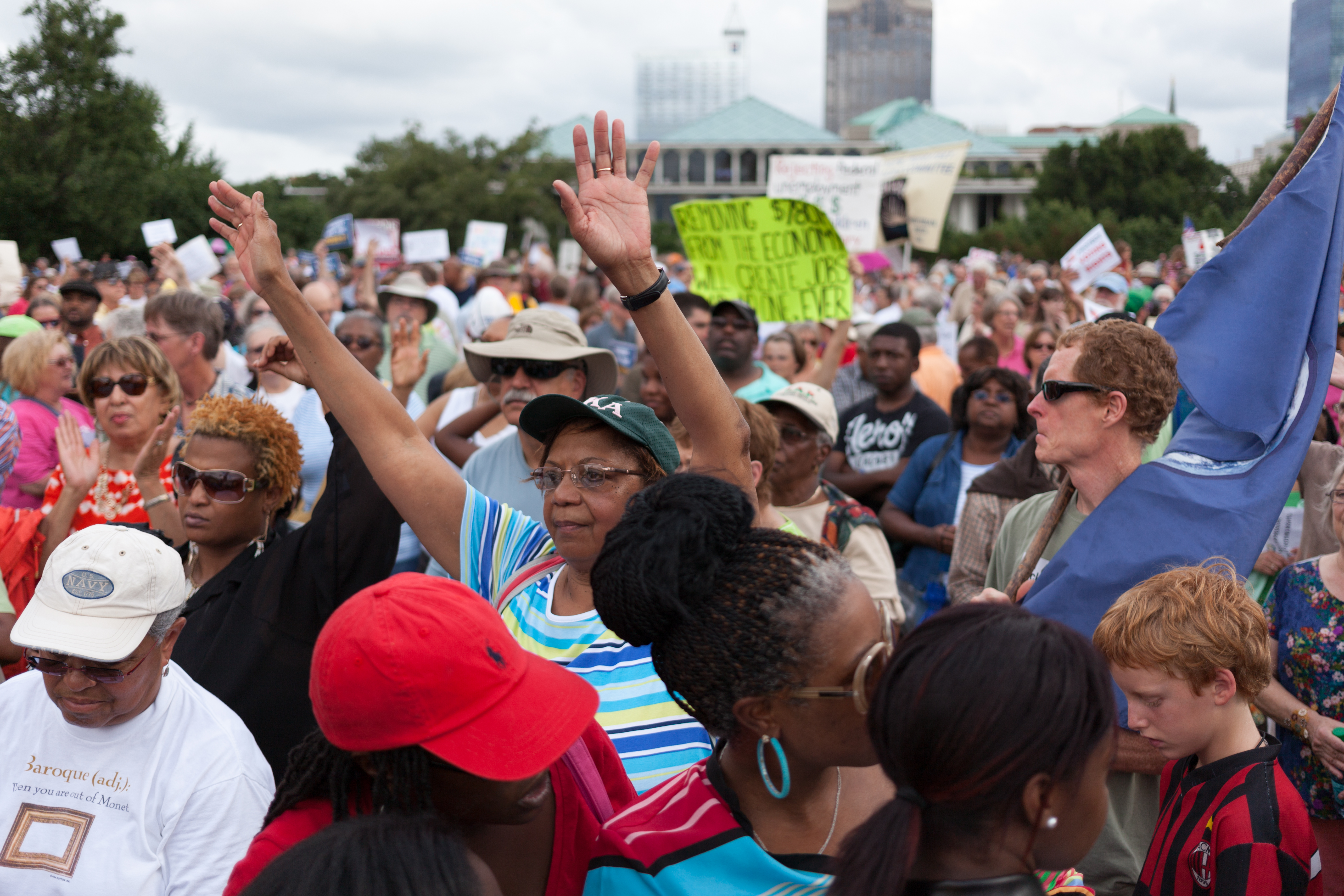The NC Council of Churches is proud to publish a brand new e-book collection of testimonies from Moral Mondays. With 32 short vignettes from North Carolinians across the state, Voices of Moral Mondays tells the story of everyday folks being motivated to speak out on account of their faith. Many, though not all, of the accounts describe what it was like to engage in civil disobedience and be arrested by the authorities. Click here to download the free e-book.
By Aleta Payne, NC Council of Churches Development & Communications
The three most important people in my life happen to be young, African American men. None was born in North Carolina, but all have lived here most of their lives.
Precious as they are to me, they are also beloved children of God. Their Creator values them as much as God values anyone else, regardless of skin color, wealth, age or any other factor intertwined with recent human decisions about who gained and who lost in our state.
Standing on the sweaty edge of the final Moral Monday, at the end of a summer too long on bad legislative decisions and too short on political common sense and humanity, I was also reminded and reassured that my boys matter to a lot of people who have never met and will never meet them. All the folks who came out – to sing, to pray, to face arrest – did so not just for themselves, but for others who deserved better than the state’s majority leadership provided. They were there for everyone’s children, everyone’s elderly neighbors or kin, for schools and teachers, for North Carolina’s natural resources, for a state that had been a progressive model but has rapidly become a late-night joke.
All the folks who came – to sing, to pray, to face arrest did so not just for themselves, but for others who deserved better.
The Legislature didn’t just set out to diminish my sons and people who look like them; they seemed determined to minimize a substantial swath of the state’s population. But week after week, those protestors proved to be much more than the politicians set out to make them seem. Those gathered in Raleigh were not fragmented and unworthy sub-groups of the population. We defied the caricatures invoked in an effort to limit us — potentially felonious; needy and greedy; poorly informed about our own bodies and well-being; unreasonably expectant of a sound education; carpet-bagging agitators importing discontent.
Anyone who actually walked among the crowd on that last or any other Monday knew it represented North Carolina. Those protesting care about this state and everyone in it, whether out of a place of faith or a sincere conviction that diminishing one of us diminishes all of us. On behalf of the three young men who call me Mom, I am grateful.

